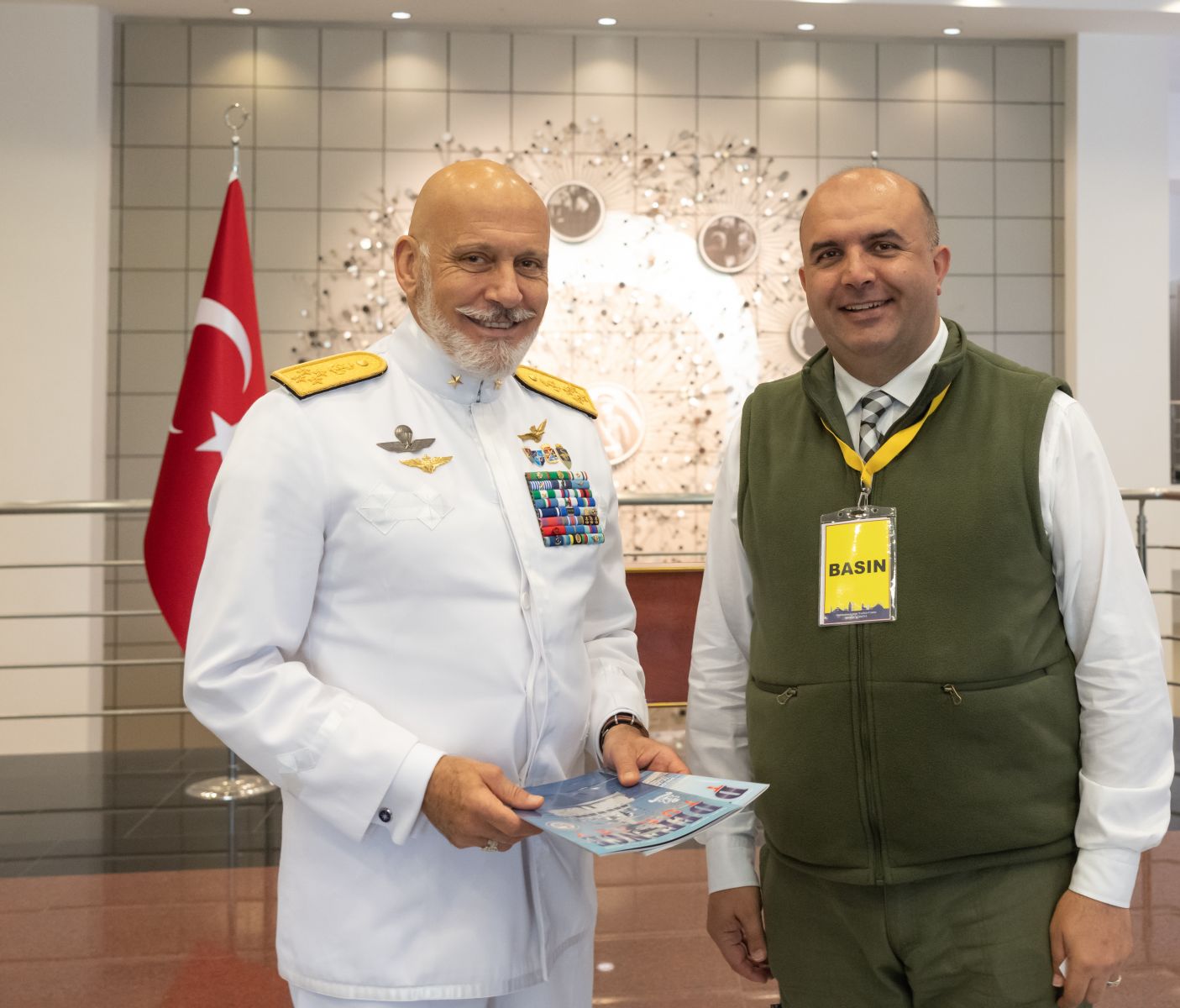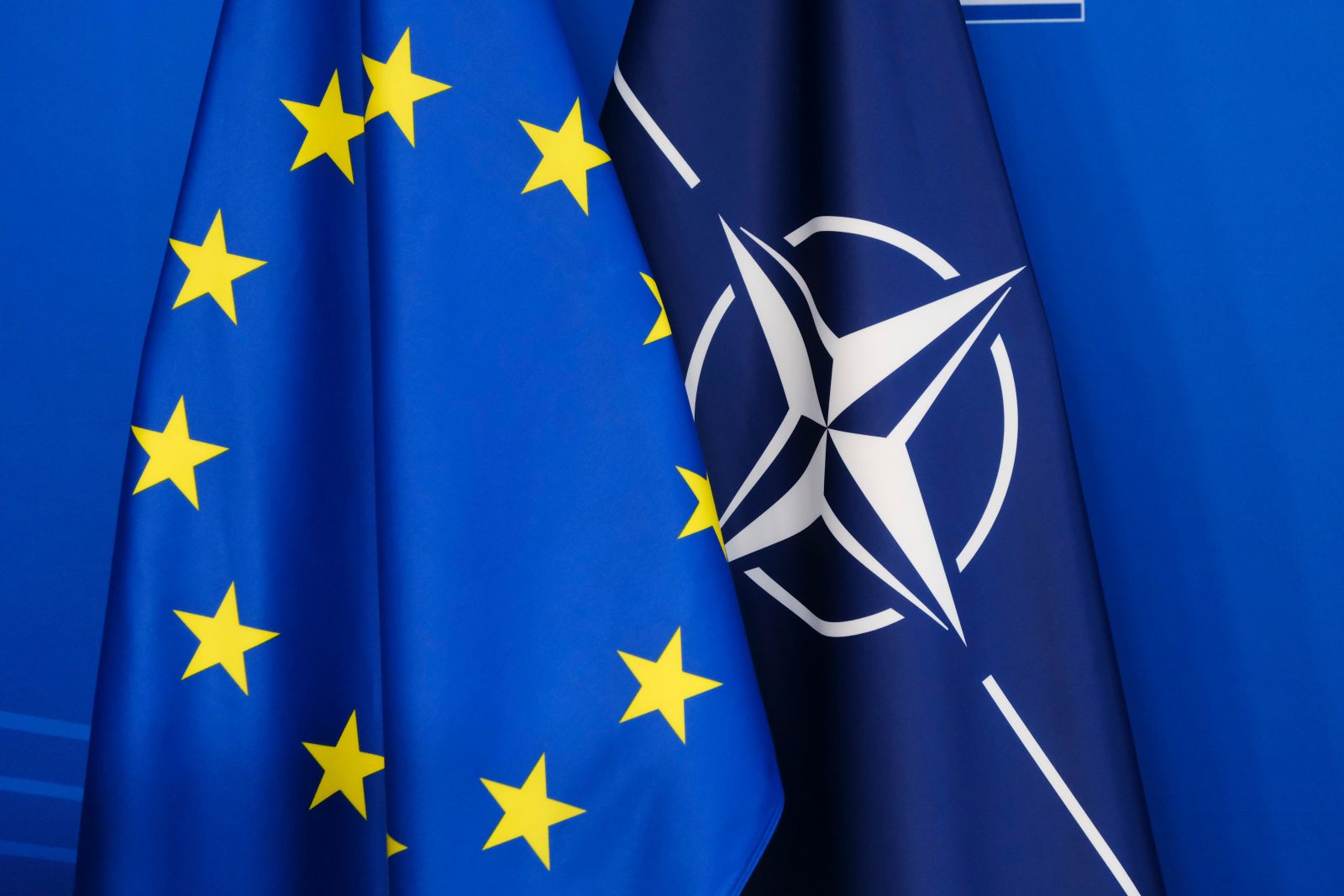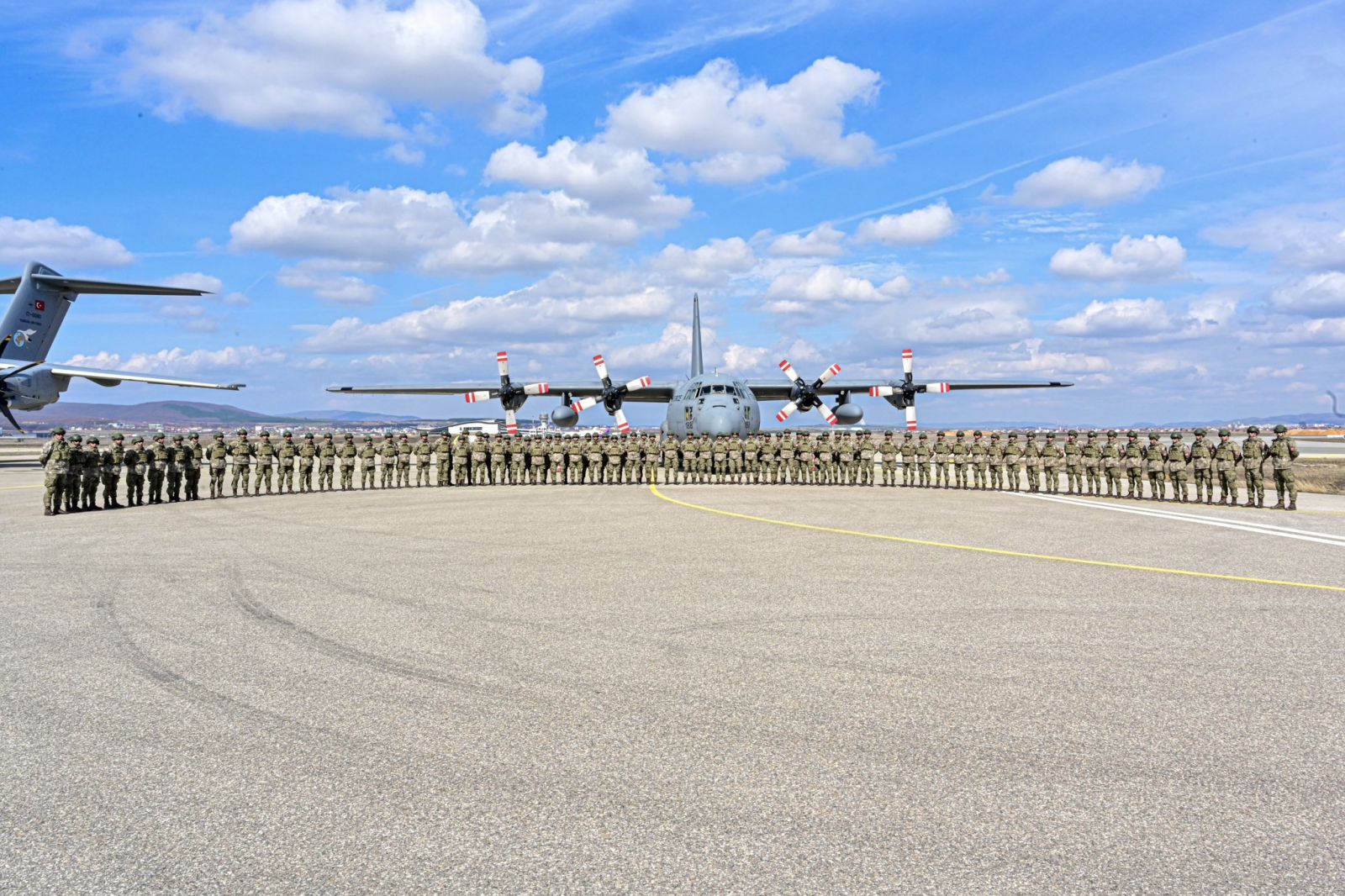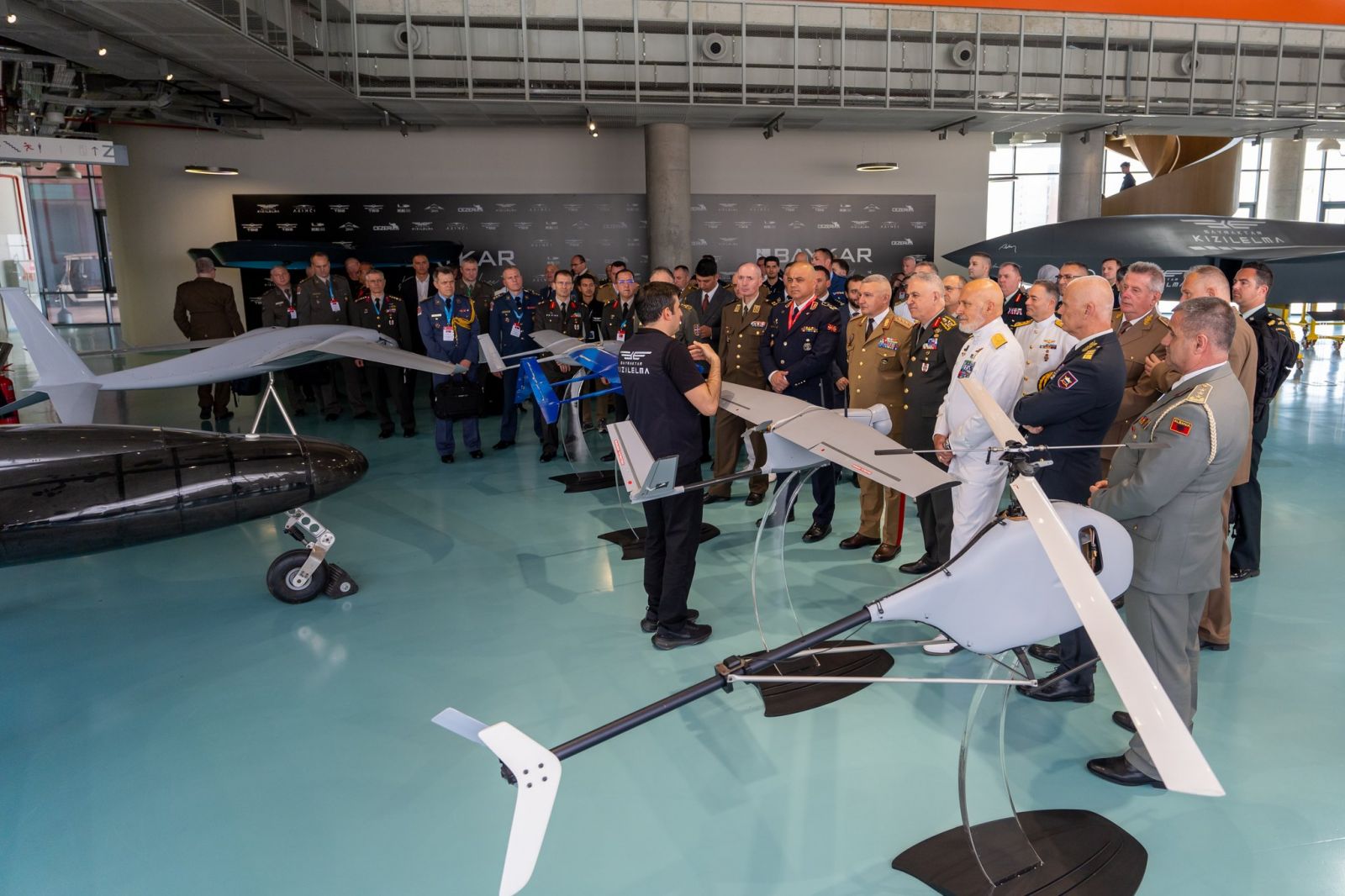Tarih: Issue 140 - June 2025 Güncelleme: November 23, 2025
Defence Turkey: First of all, thank you for sparing time for our readers. How would you explain your job and official duties? How would you sum up your role and responsibilities?
Admiral Giuseppe CAVO DRAGONE: The Military Committee, which I have the honor of leading, is unique in its nature. We truly sit at the crossroads of various sides of this Alliance. We link the political decision makers of the Alliance with the military component of NATO, including our two Strategic Commanders, the Supreme Allied Commander Europe and the Supreme Allied Commander Transformation. And true to the spirit of the Alliance, our decisions are grounded in consensus.
With that consensus, we go through vigorous steps and process to iron out any divergence that may arise between Allies. And I will say that not everything is agreed upon in the first draft, but that is the beauty of this Alliance of like-minded democracies: despite some differences and varying opinions, we always come to a collective decision that is best for the one billion citizens we do protect in this Alliance. During our Military Committee in Permanent Sessions, every Ally has the opportunity to bring their voice to the table. That goes for all things in NATO: from capability targets to operational planning, the Military Committee keeps every link in mind when deliberating.

Defence Turkey: Over the past few years, the Alliance has entirely refocused on collective defense. What will your priorities during your tenure as Chairman of the NATO Military Committee?
Admiral CAVO DRAGONE: My role as the Chair of the NATO Military Committee is ultimately to lead the Allied military representatives in providing unfettered military advice to the NATO political leadership. As NATO's senior military officer, I support the Secretary General and act as the principal military advisor to NATO’s political decision-making bodies. It is ultimately my responsibility to ensure that the Chiefs of Defense of all NATO member countries – through the Military Committee - can communicate consensus-based advice on military matters effectively. In terms of my priorities, they reflect the priorities of this Alliance. It is crucial that Allies continue to support Ukraine. As I have previously pointed out, Ukraine is not only fighting for its sovereignty, but its identity; as we support Ukraine, we uphold these values which underpin Euro-Atlantic security. Furthermore, I believe it is crucial that Allies continue to invest in their defense spending and defense industrial capacity. In this time of complex security challenges, investing in our collective defense means investing in our future security. To achieve all this, one element is vital: our cohesion as the undercurrent of every decision made in the Alliance. Starting from the militaries, of course. With a motto that is more than words: alone, we may go faster, but together, we can go further.
Defence Turkey: As Chairman of the NATO Military Committee, how do you evaluate Russia’s full-scale invasion of Ukraine? Can you elaborate on how the Russia-Ukraine War, which began in February 2022, has impacted the NATO 2030 agenda, which was accepted at the 2021 NATO Summit in Brussels, as well as NATO’s outlook towards 2030 and beyond?
Admiral CAVO DRAGONE: We all see the devastating consequences of Russia’s aggression. These consequences are not confined to the soldiers on the frontline. Russia’s war includes a terrible pattern of attacking Ukrainian civilians and critical infrastructure. Too many hospitals and medical workers have been targeted over the last years. We continue to reiterate our condemnation of the Russian unprovoked onslaught in Ukraine.
Russia’s brutal invasion of Ukraine has brought war in Europe and changed our security environment for many years to come. We are facing the most dangerous security environment in decades, also as a result of persisting terrorist threats and intense global competition.
This is why we are making NATO a stronger, fairer, and more lethal Alliance. But to make it stronger, we must increase defense spending, urgently. That underpins everything. To make NATO fairer, we will rebalance the burden of our security, with all Allies contributing their fair share. Becoming more lethal means strengthening our deterrence and defense posture and providing our militaries with what they need to keep us safe. This is our agenda today, looking forward to the coming decades, with in mind a path for a multi domain-enabled Alliance, by 2030. This means focusing on all domains based on the new hybrid and destabilizing threats, including from the cyberspace. The threats we face are here and now, we have to start today, and the Alliance will continuously evolve and adapt to the changing security environment.

Defence Turkey: How does the NATO 2030 concept aim to reshape the Alliance’s strategic posture toward Russia and China, and what measures could enhance its effectiveness?
Admiral CAVO DRAGONE: War has returned to Europe because of Russia – which is the main long-term threat to NATO – and Putin’s war machine is speeding up, not slowing down. Russia has teamed up with China and is reconstituting its forces, also with Chinese technology, thus producing more weapons and faster than we thought. They are expanding their militaries and their capabilities. In terms of ammunition, Russia produces in three months what the whole of NATO produces in a year. Russia could be ready to use military force against NATO within five years.
On another front, China continues to be a strategic competitor and is also modernizing and expanding its military at breakneck speed. It already has the world’s largest navy, and its battle force is expected to grow to 435 ships by 2030. As we know, China is also building up its nuclear arsenal and it aims to have more than 1,000 operational nuclear warheads, also by 2030.
There is no room for doubt: NATO has to become stronger, fairer and more lethal, quick, which means strengthening our deterrence and defense posture. Of course, increased Sino-Russian cooperation has also strategic and operational implications that we regularly assess. But, in the end, the Strategic Concept stands.

Defence Turkey: Various signals from across the Atlantic suggest that Europe’s security is now primarily its own responsibility, and that Europeans can no longer blindly rely on the United States as their principal ally. In this context, after the United States suspended military aid to Ukraine on March 4, 2025, European Commission President Ursula von der LEYEN announced a set of proposals aimed at strengthening Europe’s defense industry and enhancing military capabilities by mobilizing nearly €800 Billion in funding. How do you evaluate this funding allocation in terms of NATO’s future military structure and the further development and enhancement of its current defense capabilities?
Admiral CAVO DRAGONE: The European Union is an essential partner for NATO. Our cooperation has significantly expanded in recent years, and it continues to grow. I welcome the fact that Europe is firmly stepping up, both at national level and at European/Institutional level, to shoulder a greater responsibility for our shared security. NATO and the EU have worked together on issues like military mobility, maritime, and cyber defense. NATO continues to work with the EU to streamline regulations and procedures, identify key supply routes, and upgrade dual-use transport infrastructure to meet military requirements. We have shared goals and understand the different but complementary roles we play in this effort. We are increasing our cooperation in areas like new technologies and working together to help strengthen defense industrial cooperation. The message is clear: we all urgently need to invest more in defense, and the EU has the potential to play an important role in strengthening that capacity. As we further develop our partnership, the fullest involvement of non-EU Allies in EU defense efforts is also key.
From a military standpoint, a longstanding area of cooperation between NATO and the EU continues to be military mobility. The EU White Paper, released earlier this year, sent a strong message by recognizing military mobility as an essential enabler for European security and defense. It provides a further opportunity to strengthen NATO-EU cooperation. EU regulatory and infrastructure investment instruments have the potential to significantly improve NATO forces’ ability to rapidly reinforce across Europe, and to ensure that European civilian transport networks and regulations are suitable for rapid and effective military movement.
We want to see a more capable European defense, interoperable with NATO, and complementing what we do. Without duplications, of course, which we cannot afford.
Defence Turkey: How important is it for NATO to explicitly define China as a strategic rival, given its growing global influence and deepening ties with Russia’s military-industrial complex? Considering that China is also an important trading partner for many European countries, are there Alliance member states reluctant to adopt strong or confrontational language toward Beijing?
Admiral CAVO DRAGONE: As the NATO Secretary General pointed out this week, China is modernizing and expanding its military at breakneck speed. It already has the world’s largest navy, and – as I said - its battle force is expected to grow to 435 ships by 2030. Not only this, it is also building up its nuclear arsenal and aims to have more than 1,000 operational nuclear warheads, by 2030. We have seen hostile hybrid activities, including information manipulation, political interference and – particularly – cyber operations against Allies emanating from China. And we know that China seeks to control key technologies, critical infrastructure, and supply chains.
In all this, I must emphasize the lack of transparency, by China, like in its behavior as a decisive enabler of Russia’s war. And we see that the relationship between Moscow and Beijing is only getting stronger. China’s large-scale support for Russia’s defense industrial base increases the threat Russia poses to its neighbors and, ultimately, to Euro-Atlantic security. As such, NATO believes that countries with deep ties to Russia and North Korea, especially China, must use their influence to uphold international law, by opposing Moscow and Pyongyang’s dangerous expansion of Russia’s aggression against Ukraine, and by implementing all relevant Resolutions of the United Nations Security Council. At the same time, it is incredibly important that NATO continues to engage with China to seek constructive dialogue on military transparency. And as such, we call on Beijing to cooperate constructively on arms control, disarmament and non-proliferation.

Defence Turkey: The Western Balkans region appears to have become a topic of high interest once more for the Alliance. NATO Kosovo Force KFOR, which continues to play a vital role in maintaining peace, security, and stability in Kosovo, is NATO’s longest running operation. How long KFOR continue to exist?
Admiral CAVO DRAGONE: I attended the Balkans Chiefs of Defense Conference at the end of May, where I had once more the opportunity to remind that, indeed, the Western Balkans remains high on NATO’s agenda, as a region of key strategic importance for the Alliance. NATO has supported peace and stability in the Western Balkans region since the 1990s; our commitment remains strong today. And for over two decades, KFOR has maintained a safe and secure environment for all people in Kosovo and freedom of movement, in accordance the UN Security Council Resolution 1244. And as you rightly pointed out, KFOR continues to play a vital role for the stability of the Western Balkans, as a whole.
Therefore, to answer your question: yes, KFOR will continue to exist and to fulfil its mandate, impartially and at all times, for as long as required. That said, while NATO is providing important military contributions, the ultimate path to a long-lasting peace is political. And the situation is calm, but fragile, as we saw with the wake of violence in 2023, when we deployed up to 1,000 additional troops to Kosovo and increased KFOR’s posture in the north. This was the biggest reinforcement of our mission in a decade. On a diplomatic level, NATO continues to strongly support the EU-facilitated Dialogue as the framework to solve pending issues with respect for the rights of all communities. NATO political leaders are in close contact with the new EU Special Representative for the Belgrade-Pristina Dialogue Peter Sørensen, and we expect Belgrade and Pristina to engage in good faith within the framework of this Dialogue.
Defence Turkey: Let’s focus on Türkiye, as this is the reason we are here. How do you evaluate the current state of the relations between NATO and Türkiye? What do you think could be done to increase the level of this cooperation? What is your forecast for the future?
Admiral CAVO DRAGONE: Türkiye has been an invaluable NATO Ally for more than 70 years. The recent NATO Foreign Ministers Meeting in Antalya, other relevant opportunities for debate provided by the leadership, and – last but absolutely not least, Türkiye’s reliable, significant contributions to NATO’s operations and exercises are testament to its commitment to the Alliance. As a Military, let me focus on the high-level Military contribution, though. Türkiye brings substantial capabilities to NATO, with the second largest army in NATO and investing more than 2 percent of its GDP in defense. Furthermore, Türkiye hosts NATO’s Allied Land Command in Izmir and a critical radar system in Kürecik – supporting NATO’s ballistic missile defense and contributing to Allied deterrence. It also contributes to NATO’s maritime and air policing deployments and will take part in our Baltic Air Policing mission in Estonia in 2026. In addition, last year, Türkiye completed a successful command of NATO’s KFOR mission in Kosovo, and it will assume the command of KFOR again this October. Its steady provision of troops is helping to support a safe and secure environment for all people living in Kosovo. Türkiye’s powerful capabilities provide its NATO Allies with safety, and a deep assurance of its commitment to Allied collective security. I would also like to take the opportunity to highlight Türkiye’s strong, constant support to Ukraine. We see this through Türkiye’s participation in the Coalition of the Willing, and hosting of diplomatic negotiations in Istanbul within the last month. Looking ahead, I am confident that Türkiye will maintain these high standards of contribution, for which the Alliance is proud, and grateful.

Defence Turkey: In recent years, thanks to its investments in the defense and aerospace industry, Türkiye has started to rank among the leading countries in defense exports. It encourages increased investment in military technology transfer and defense industry cooperation among the Allies. In this context, many Turkish companies closely follow defense tenders in NATO member countries, some submit bids, and a few have even already secured contracts. What kind of advice would you offer to Turkish companies that aim to sell defense systems to NATO? Do you think that Turkish companies are sufficiently encouraged to take part in the competition in NATO tenders?
Admiral CAVO DRAGONE: Türkiye holds a pivotal position within NATO’s defense infrastructure, with literally hundreds of organizations and thousands of companies engaged in innovation. I was in Istanbul – as I said – for the Balkans CHODs Conference, and I had the opportunity to visit the premises of the Baykar drone factory, one of the largest in the world. Truly impressive. NATO countries have shown increasing interest in Turkish products. I am aware that, for example, last month, an agreement was signed with Spain for the production of Hürjet aircraft. This is a tangible example of how Allies are investing in Türkiye’s defense and aerospace industry. Türkiye has a very solid defense industrial base and is already working in close conjunction with industries and countries all over Europe and the United States. As the NATO Secretary General pointed out while speaking to media at the recent meeting of NATO Ministers of Defense, NATO encourages its Allies not to have limitations on arms sales from one Ally to another. I truly encourage Türkiye to continue pursuing investments in its defense industry with Allies, as this collaboration further strengthens our collective security. Ultimately, this is part of the wider discussion of the necessity of Allies to invest in their defense industrial base and increase production and investment. This means that NATO’s deterrence remains effective in the face of the complex threats we face now and in the future.